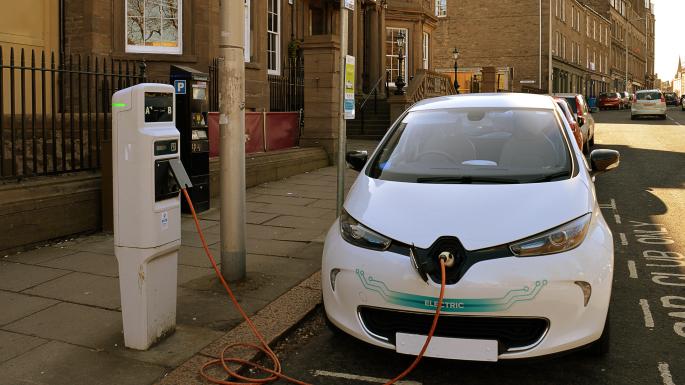British motorists are not getting the same encouragement to dump their petrol and diesel cars for electric vehicles as the rest of Europe.
Research by independent car buying site carwow has revealed the gap in grants and incentives being given to bolster take-up of EVs in different countries across the continent.
The bad news is that Britain is stalling – or even in reverse – compared to Europe’s leading nations after the government cut the plug in grant in the Halloween budget from £4,500 to £3,500.
In France, grants of £8,700 are enjoyed towards the purchase of electric and hybrid vehicles; in Sweden it’s £5,000; in Germany £4,400, while in Norway and the Netherlands there is no VAT on purchases. In Italy, there’s no tax payable for the first five years, then a 75 per cent reduction thereafter.
That means a Renault Zoe that costs £11,500 in the UK is just £2,355 in France once the grant is deducted.
Under UK Chancellor Philip Hammond’s new proposals, the maximum UK grant would fall to £3,500, while the grant of up to £2,500 for hybrid plug-in vehicles would be abolished altogether. This is 60 per cent lower than the grant available in France, 30 per cent lower than Sweden and 25 per cent less than in Germany.
As part of the government’s green air plan it was announced last year that all new petrol and diesel cars and vans would be banned from 2040.
However, the UK is playing catch up when it comes to the infrastructure required to support a boom in EV ownership.
When it comes to installing charging points at home, the UK matches the Norwegian government by paying half of the costs.
That means drivers here can claim £500 of the £1,000 charge – in Norway it amounts to a saving of £1.8k. In France buyers can claim the whole cost of just under £400.
There’s a marked difference too in the number of charging points being installed across the continent.
In the Netherlands there are 75,000 private and 32,000 public charging points. Germany has 10,800 with another 12,000 planned – in the UK just 2,833 were installed during the last year. And even initiatives such as Volkswagen and Tesco’s plans to install 2,400 new free charging points by 2020 is not enough.
Research conducted by independent car buying site carwow revealed that a lack of charging points is the biggest worry among motorists in Manchester (72 per cent).
Asked what their biggest fears are about a lack of charging points, drivers in Manchester revealed that it is being unable to complete essential journeys (42 per cent), running out of power and being stranded (68 per cent) and facing long queues at charging points (45 per cent).
In Norway drivers of low emission vehicles don’t pay road tolls, can drive in bus lanes and get half price ferry travel.
Andrew Hooks, chief operating officer of carwow, says: “This backwards step by the UK government sends a completely confusing message to drivers.
“On the one hand we know that new petrol and diesel vehicles will be banned soon to cut air pollution, yet the incentives to go green are being slashed. It makes no sense whatsoever.
“We’re either serious about meeting the 2040 deadline or we’re not. Currently, it looks like we’re not.”
According to figures released by the Society of Motor Manufacturers and Traders, sales of electric vehicles reached a record high in August and accounted for one in every 12 new cars purchased in the UK.
Plug-in hybrid and pure electric cars made up eight per cent of the overall market, up by almost a quarter on 2017.







